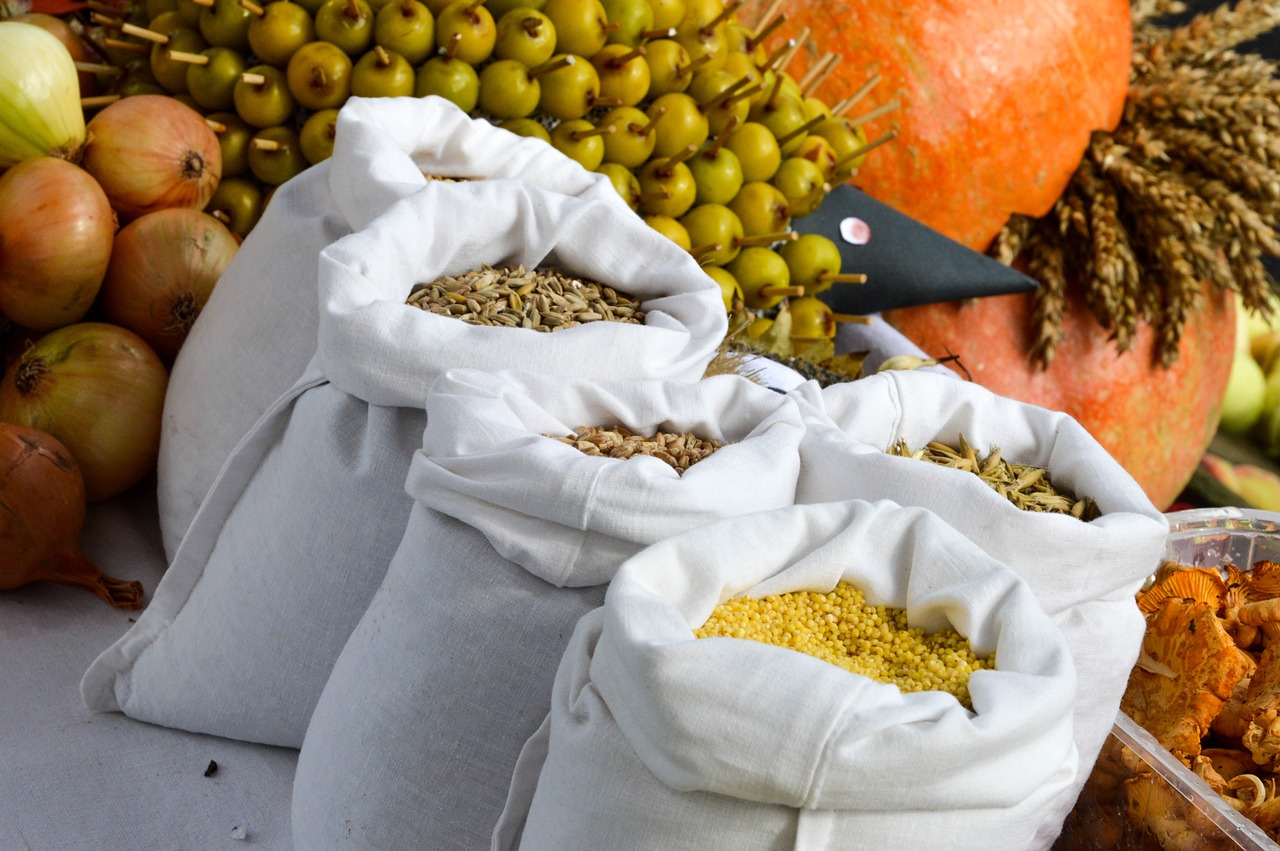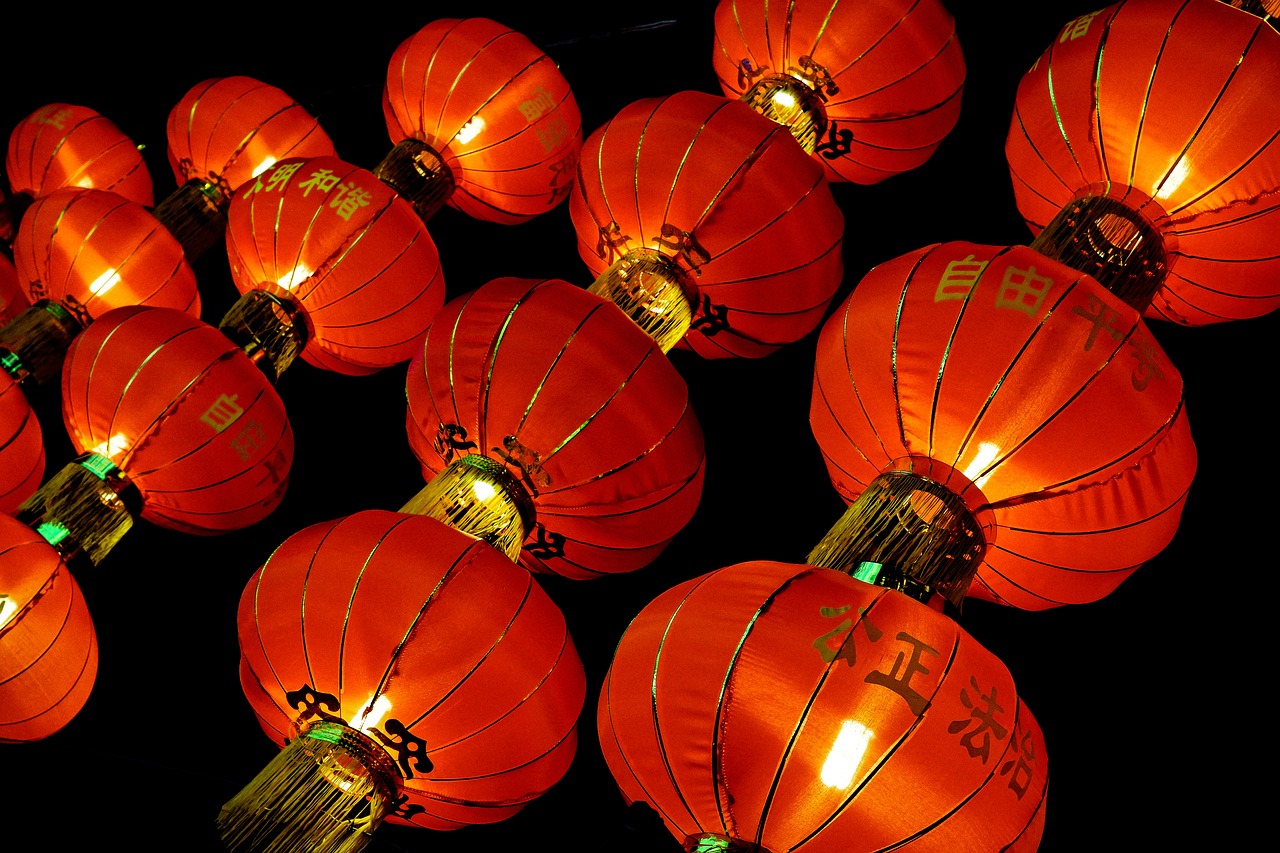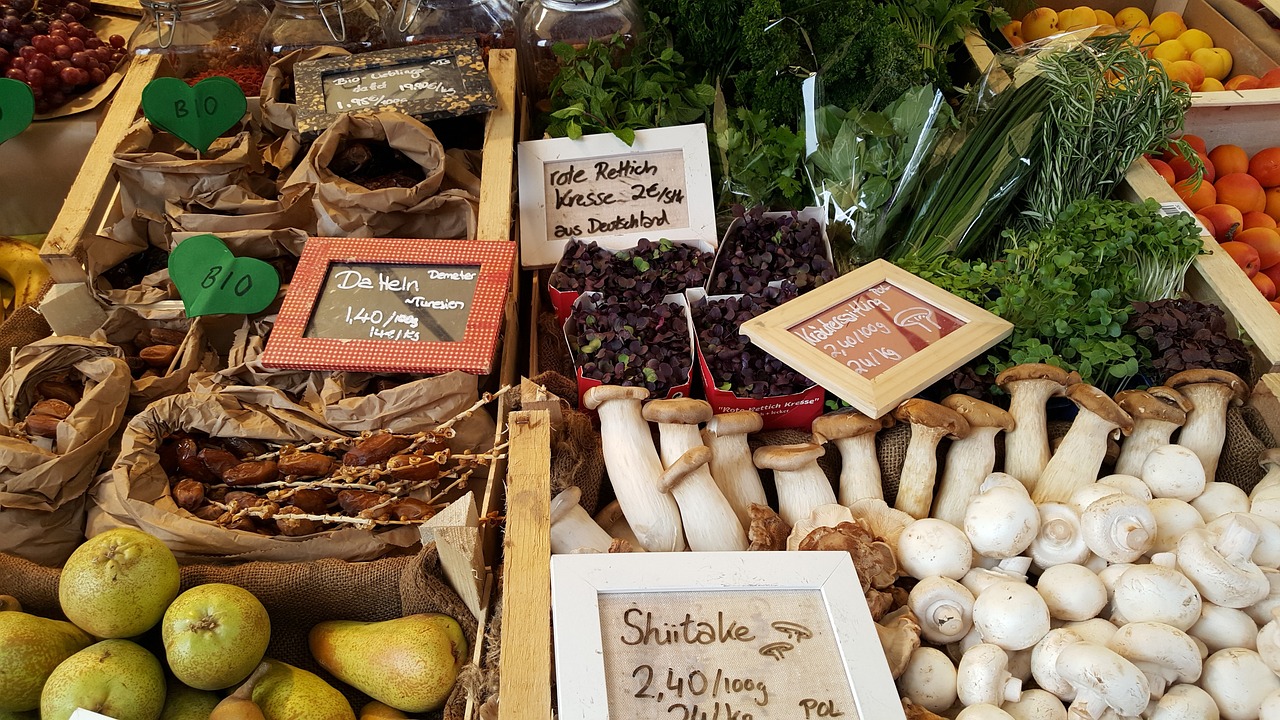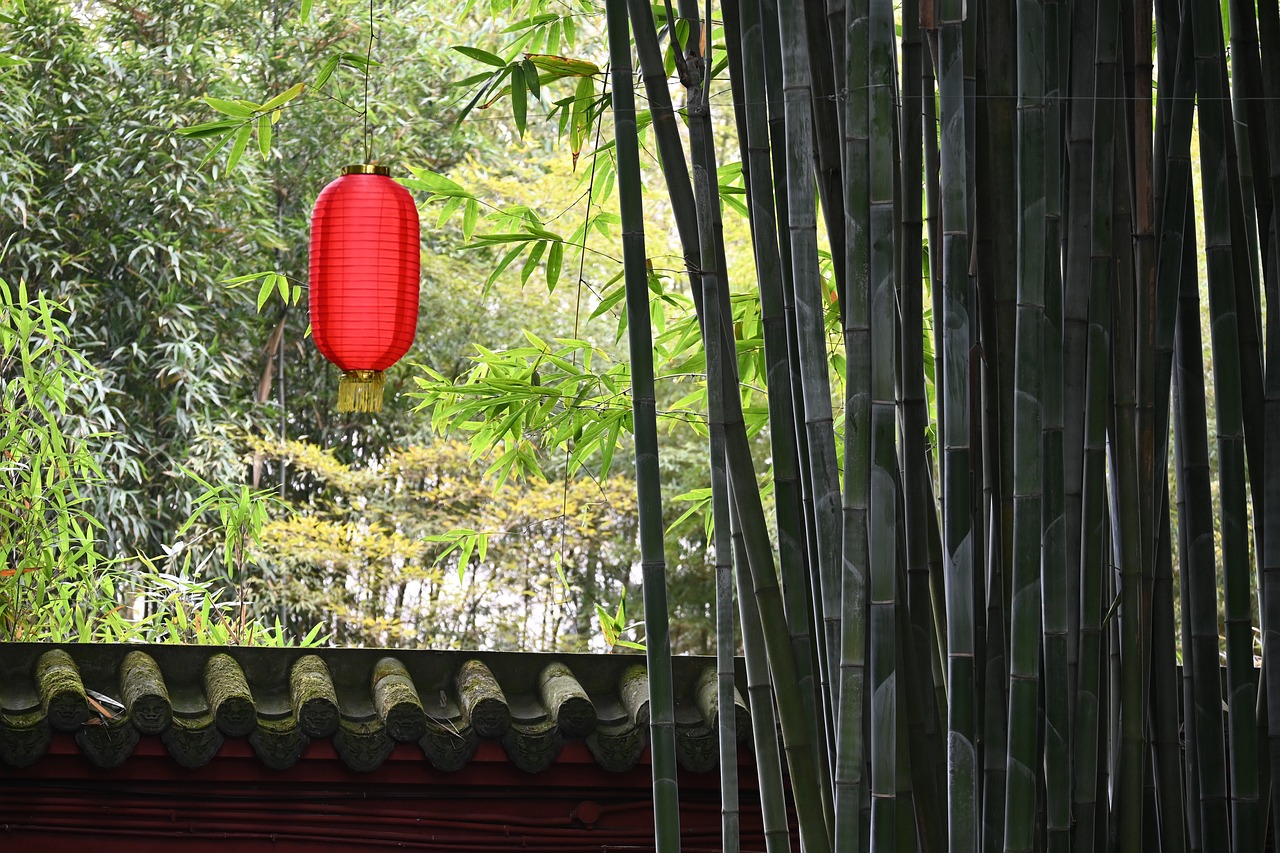The Celebration of Life at Nigeria's Osun-Osogbo Festival
The Osun-Osogbo Festival in Nigeria is a vibrant celebration that embodies the essence of life, culture, and tradition. It serves as a testament to the rich heritage of the Yoruba people, showcasing a harmonious blend of spirituality, artistry, and community engagement. The festival is a colorful tapestry of rituals, ceremonies, music, dance, and craftsmanship, creating an immersive experience that captivates both locals and visitors alike.
At the heart of the Osun-Osogbo Festival lies a deep-rooted history and cultural significance that dates back centuries. It is a time-honored tradition that honors the river goddess Osun, revered for her healing powers and benevolence. The festival is a sacred occasion that brings together people from all walks of life to pay homage to their ancestors, seek blessings for the future, and celebrate the interconnectedness of humanity with nature.
The Osun-Osogbo Grove stands as a testament to the spiritual legacy of the Yoruba people, serving as a sanctuary of tranquility and reverence. Designated as a UNESCO World Heritage Site, the grove is a living museum of biodiversity and cultural heritage, preserving ancient traditions amidst a rapidly changing world. Visitors to the grove are enveloped in a sense of awe and wonder, connecting with the primal forces of nature and the divine presence of Osun.
During the festival, intricate rituals and ceremonies unfold, guided by priestesses and traditional leaders who embody the wisdom and grace of the Yoruba tradition. The rhythmic beats of drums, the mesmerizing movements of dancers, and the vibrant hues of ceremonial attire create a sensory feast that transports participants into a realm of spiritual transcendence. Each gesture, each chant, and each offering symbolize a profound connection to the divine and a deep respect for the ancestral spirits.
Art, music, and dance take center stage during the Osun-Osogbo Festival, showcasing the creativity and talent of Yoruba artisans and performers. The air is filled with melodies that echo through the grove, while vibrant displays of traditional crafts and handwoven textiles adorn the marketplaces. Every stroke of a brush, every note sung, and every step danced is a tribute to the cultural vibrancy and artistic legacy of the Yoruba people.
As the festival unfolds, marketplaces come alive with the hustle and bustle of vendors selling a myriad of goods, from intricate beadwork to aromatic spices. The vibrant tapestry of colors and sounds creates a sensory overload that immerses visitors in the lively atmosphere of celebration and camaraderie. Local delicacies tempt the taste buds, while skilled artisans showcase their craftsmanship, keeping ancient traditions alive in a modern world.
Community engagement lies at the heart of the Osun-Osogbo Festival, with initiatives aimed at fostering unity, cultural preservation, and sustainable development. Educational programs offer insights into the history and significance of the festival, empowering future generations to carry on the legacy of their ancestors. Social impact projects aim to uplift local communities and promote inclusivity, creating a legacy of positive change that resonates far beyond the festival grounds.
Despite its deep-rooted traditions, the Osun-Osogbo Festival faces modern challenges and debates surrounding the balance between preservation and innovation. Efforts to modernize the festival while staying true to its cultural essence are met with both enthusiasm and skepticism, reflecting the complexities of preserving heritage in a rapidly evolving world. The ongoing dialogue between tradition and modernity shapes the future of the festival, ensuring that it remains a beacon of cultural pride and spiritual reverence.

History and Significance of Osun-Osogbo Festival
The Osun-Osogbo Festival holds a rich history and profound significance within the Yoruba culture of Nigeria. Dating back centuries, this vibrant celebration is deeply rooted in the traditions and beliefs of the Yoruba people, honoring the river goddess Osun and paying homage to ancestral spirits.
Legend has it that the Osun-Osogbo Festival originated from a sacred grove where Osun, the goddess of fertility and water, was believed to have first appeared. Over time, the festival evolved into a major annual event that draws pilgrims, tourists, and locals alike to partake in its rituals and festivities.
The festival serves as a cultural landmark, symbolizing the unity of the Yoruba community and showcasing their spiritual connection to nature and the divine. It is a time of renewal, purification, and thanksgiving, as participants seek blessings, prosperity, and protection for the year ahead.
At the heart of the Osun-Osogbo Festival is the belief in the power of collective worship and communal harmony. Through prayers, offerings, and ceremonies, participants seek to maintain the balance between the physical and spiritual realms, ensuring the well-being of individuals, families, and the entire community.
The Osun-Osogbo Festival transcends mere celebration; it is a living tradition that encapsulates the essence of the Yoruba worldview, emphasizing respect for ancestors, reverence for nature, and the interplay of the seen and unseen forces that shape human existence.

Osun-Osogbo Grove: Sacred Site and UNESCO World Heritage
The Osun-Osogbo Grove stands as a revered sacred site in Nigeria, embodying centuries of spiritual significance and cultural heritage. This mystical grove is dedicated to the river goddess Osun, a deity deeply revered by the Yoruba people. As visitors step into the lush greenery of the grove, they are enveloped by a sense of tranquility and reverence, feeling the presence of ancient spirits and traditions that have been preserved through generations.
Designated as a UNESCO World Heritage Site, the Osun-Osogbo Grove is a testament to the harmonious coexistence of nature and spirituality. The recognition by UNESCO underscores the global importance of this sacred space, highlighting its value not only as a cultural treasure but also as a natural sanctuary that deserves protection and preservation for future generations.
Within the grove, towering trees whisper tales of old, their roots intertwined with the stories of the Yoruba people. Ritual sites dot the landscape, offering glimpses into the intricate ceremonies and practices that have been carried out for centuries to honor Osun and seek her blessings. The grove serves as a living museum of tradition, a place where the past and the present converge in a timeless dance of reverence and celebration.

Rituals and Ceremonies During the Festival
The Osun-Osogbo Festival is a vibrant celebration that pulsates with the rhythm of ancient rituals and colorful ceremonies, honoring the deities and ancestors of the Yoruba tradition in Nigeria. During this auspicious event, the air is filled with the scent of incense and the sound of chanting, creating a mystical atmosphere that transports participants to a realm where the spiritual and earthly realms intertwine.
One of the central rituals during the Osun-Osogbo Festival is the procession to the sacred Osun-Osogbo Grove, where devotees gather to pay homage to the river goddess Osun. Led by priestesses adorned in traditional attire and carrying sacred objects, the procession winds its way through the forest, offering prayers and blessings along the way. The rhythmic beats of drums and the melodic strains of traditional instruments accompany the participants, infusing the ceremony with a sense of reverence and joy.
At the heart of the festival are the ceremonies that symbolize the renewal of life, the continuity of tradition, and the connection between the community and the divine. Offerings of fruits, flowers, and other symbolic items are presented to the deities, invoking their blessings and protection. The priestesses invoke ancient incantations, calling upon the spirits to bless the land, the people, and the future generations.
Throughout the festival, dances and performances serve as expressions of cultural identity and spiritual devotion. Dancers adorned in elaborate costumes move in graceful patterns, embodying the spirits of the ancestors and the deities. The music, a blend of traditional rhythms and modern influences, fills the air with energy and emotion, inviting all to join in the celebration of life and heritage.
As the sun sets on each day of the festival, the rituals culminate in a grand ceremony where the community comes together to feast, share stories, and express gratitude for the blessings bestowed upon them. The flickering torches cast a warm glow on the faces of the participants, creating a tapestry of light and shadow that mirrors the complexities of human existence.

Role of Priestesses and Traditional Leaders
At the heart of the vibrant and sacred Osun-Osogbo Festival in Nigeria lie the crucial roles of priestesses and traditional leaders. These revered figures play a pivotal part in organizing and leading the intricate rituals and ceremonies that honor the deities and ancestors of the Yoruba tradition. Priestesses, known for their deep spiritual connection and wisdom, serve as intermediaries between the community and the spiritual realm, guiding the faithful in their worship and supplications.
Traditional leaders, including kings and chiefs, hold significant authority and responsibility during the festival. They oversee the adherence to cultural protocols, ensure the smooth execution of rituals, and uphold the traditions passed down through generations. Their presence lends a sense of continuity and authenticity to the festival, reinforcing the spiritual sanctity and cultural richness of the Osun-Osogbo celebration.
Moreover, priestesses and traditional leaders embody the embodiment of cultural heritage and ancestral wisdom, embodying the essence of the Yoruba people's spiritual beliefs and practices. Through their leadership and guidance, they preserve the sacred traditions and customs that define the Osun-Osogbo Festival, fostering a deep sense of community, identity, and reverence for the divine.

Art, Music, and Dance Performances
Art, music, and dance performances are integral components of the vibrant tapestry that makes up the Osun-Osogbo Festival. Imagine a kaleidoscope of colors swirling in harmony with rhythmic beats, captivating melodies, and graceful movements that tell stories of tradition and cultural identity. The festival comes alive with a symphony of artistic expressions that showcase the creativity and talent of the Yoruba people in Nigeria.
Artists, musicians, and dancers from various communities gather to share their talents and pay homage to the deities through their performances. The artistry displayed ranges from intricate beadwork and elaborate costumes to mesmerizing drumming and enchanting melodies that fill the air with energy and spirit. Each performance is a testament to the rich cultural heritage and artistic prowess of the Yoruba tradition.
Music plays a central role in setting the rhythm and mood of the festival, with traditional instruments like talking drums, shekeres, and flutes adding depth and resonance to the celebrations. The melodies resonate through the grove, inviting participants to sway to the music and connect with the spiritual essence of the event. Dance performances, characterized by graceful movements and symbolic gestures, bring stories and myths to life, engaging both participants and spectators in a shared cultural experience.
Throughout the festival, art exhibitions showcase a diverse range of artistic styles and themes, from traditional motifs to contemporary interpretations of Yoruba culture. Local artists display their paintings, sculptures, and crafts, offering visitors a glimpse into the creative soul of the community. The marketplace buzzes with activity as artisans sell their handcrafted goods, from intricate jewelry to vibrant textiles, adding a colorful flair to the festivities.
As the sun sets and the evening descends, the festival transforms into a magical realm where art, music, and dance merge to create a mesmerizing spectacle. Fire dancers illuminate the night with their hypnotic performances, while drum circles echo through the grove, inviting everyone to join in the rhythmic celebration. The synergy of artistic expressions fosters a sense of unity and connection among participants, transcending language barriers and cultural differences.

Marketplaces and Handicrafts at the Festival
At the vibrant Osun-Osogbo Festival, the marketplaces come alive with a kaleidoscope of colors and cultural richness. Local artisans and vendors showcase their exquisite handicrafts, ranging from intricately woven textiles to beaded jewelry, traditional pottery, and carved wooden artifacts. The bustling marketplaces offer a feast for the senses, with the aroma of local delicacies wafting through the air and the sounds of bargaining and laughter filling the atmosphere.
Visitors to the festival can immerse themselves in the traditional arts and crafts of the Yoruba people, witnessing skilled artisans at work and exploring the diverse array of handcrafted goods on display. Each item tells a story of cultural heritage and craftsmanship, reflecting the deep-rooted traditions and artistic prowess of the community.
One of the highlights of the marketplaces is the opportunity to interact directly with the artisans, learning about their techniques, materials, and the cultural significance behind each piece. Whether it's a vibrant textile dyed with natural pigments or a intricately beaded necklace symbolizing spiritual beliefs, every handicraft carries a piece of the region's history and traditions.
Additionally, the marketplaces offer a chance for visitors to support local artisans and small businesses, contributing to the sustainable development of the community. By purchasing handmade crafts and products, festival-goers not only acquire unique souvenirs but also play a role in preserving and promoting the rich cultural heritage of the Osun-Osogbo Festival.

Community Engagement and Social Impact
Community engagement lies at the heart of the Osun-Osogbo Festival, fostering a sense of unity and collective participation among the Yoruba community in Nigeria. Through various initiatives and programs, the festival not only celebrates cultural heritage but also contributes to social impact and sustainable development.
One of the key aspects of community engagement during the festival is the involvement of local artisans and craftsmen who showcase their traditional skills and products in vibrant marketplaces. These marketplaces not only offer a glimpse into the rich cultural heritage of the Yoruba people but also provide economic opportunities for the local community.
Furthermore, educational programs and workshops are organized to raise awareness about the significance of the festival and the cultural practices associated with it. This educational outreach not only promotes cultural preservation but also ensures that the younger generation is actively involved in the traditions and customs of their ancestors.
Moreover, the Osun-Osogbo Festival serves as a platform for social cohesion and community development, bringing people together from various backgrounds to celebrate their shared heritage. Through collaborative efforts and community-driven projects, the festival contributes to the overall well-being and cohesion of the society.
In essence, the community engagement initiatives associated with the Osun-Osogbo Festival go beyond mere celebration, aiming to create a lasting social impact by fostering unity, preserving cultural heritage, and promoting sustainable development within the Yoruba community in Nigeria.

Challenges and Modernization of the Festival
As the Osun-Osogbo Festival continues to evolve and adapt to modern times, it faces a set of unique challenges that test the delicate balance between tradition and innovation. One of the primary challenges is the preservation of authentic cultural practices amidst the pressures of commercialization and globalization. With the increasing commercial interest in the festival, there is a risk of diluting its spiritual essence and turning it into a mere tourist attraction.
Another significant challenge is the impact of modernization on the sacred Osun-Osogbo Grove itself. As urbanization encroaches upon the natural surroundings of the grove, there is a growing concern about environmental degradation and the loss of biodiversity in this vital ecosystem. Efforts to modernize infrastructure around the grove while preserving its sanctity present a complex dilemma for festival organizers and local authorities.
Furthermore, the question of inclusivity and representation in the festival has emerged as a pressing issue. As the festival gains international recognition and attracts a diverse audience, there is a need to ensure that the voices and perspectives of the local community, especially marginalized groups, are heard and respected. Balancing the traditional practices with contemporary values of diversity and inclusivity poses a challenge for the organizers.
Moreover, the rapid pace of technological advancement poses both opportunities and challenges for the Osun-Osogbo Festival. While digital platforms and social media offer new avenues for promotion and outreach, they also raise concerns about the authenticity and integrity of the festival experience. Finding the right balance between leveraging technology for the festival's benefit and preserving its cultural roots is a critical task in the face of modernization.
In navigating these challenges, the organizers of the Osun-Osogbo Festival are confronted with the task of honoring the past while embracing the future. By engaging in dialogue with stakeholders, fostering sustainable practices, and adapting to changing times with sensitivity and wisdom, the festival can continue to thrive as a living tradition that resonates with both the local community and the global audience.
Frequently Asked Questions
- What is the history behind the Osun-Osogbo Festival?
The Osun-Osogbo Festival has deep cultural roots in the Yoruba tradition, dating back centuries to honor the river goddess Osun and celebrate the connection between the people and the spiritual realm.
- Why is the Osun-Osogbo Grove considered a UNESCO World Heritage Site?
The Osun-Osogbo Grove is recognized as a UNESCO World Heritage Site due to its significant cultural and natural value, serving as a sacred sanctuary dedicated to Osun and preserving traditional Yoruba beliefs and practices.
- What kind of rituals and ceremonies take place during the festival?
The festival features intricate rituals, colorful processions, and spiritual ceremonies that pay homage to the deities and ancestors, showcasing the rich spiritual heritage and traditions of the Yoruba people.
- How do priestesses and traditional leaders contribute to the festival?
Priestesses and traditional leaders play vital roles in organizing and leading ceremonies, maintaining cultural practices, and ensuring the spiritual integrity of the Osun-Osogbo Festival.
- What can visitors expect in terms of art, music, and dance performances at the festival?
Visitors can experience a vibrant display of art, music, and dance that reflects the creativity and cultural richness of the Yoruba people, adding to the festive atmosphere of the Osun-Osogbo celebration.
- Are there marketplaces and handicrafts available at the festival?
Yes, the festival features bustling marketplaces offering colorful textiles, intricate beadwork, traditional crafts, and local delicacies, providing a unique shopping and cultural experience for attendees.
- How does the Osun-Osogbo Festival contribute to community engagement and social impact?
The festival fosters community unity, cultural preservation, and sustainable development through engagement initiatives, social projects, and educational programs that benefit the local community and promote cultural heritage.
- What are some of the modern challenges facing the festival?
Contemporary challenges include debates on modernization, balancing tradition with innovation, and ensuring the continued relevance and authenticity of the Osun-Osogbo Festival in a rapidly changing world.



















